John McLaughlin talks Hendrix, flamenco and hitch-hiking
Plus what not to do as a guitarist
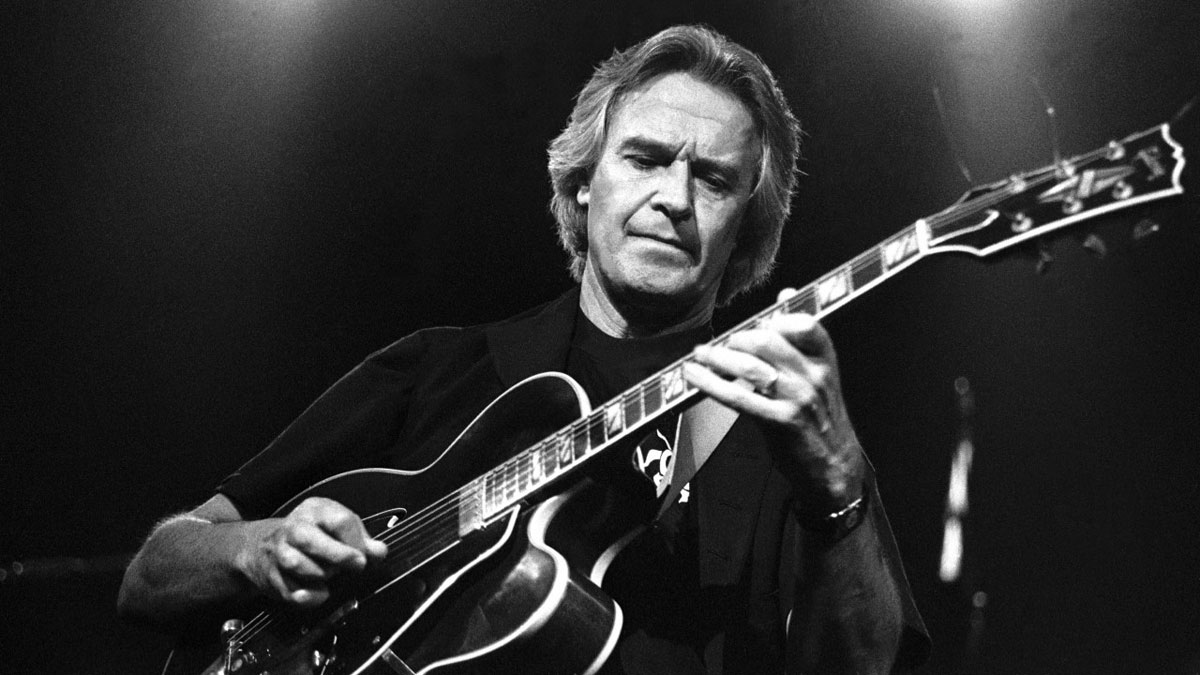
Introduction
“What I haven’t I done? I haven’t done billions of things!” says John McLaughlin when MusicRadar questions what the legendary and progressive guitarist has left to achieve.
It might technically be true, but McLaughlin’s done considerably more than most to contribute to the evolution of guitar playing, whether it was his fretwork on Miles Davis’ Bitches Brew, forming prog/fusion orginators Mahavishnu Orchestra, or his virtuosic collaborations with friend and flamenco legend Paco de Lucía.
“I’m not the sort of chap who can sit down and write music,” says McLaughlin. “When it comes, I’m happy.”
Ahead of the release of his new album Black Light (due 21 September), the pioneering player shares his wisdom and reflections on everything from the art of improvisation, to playing with Hendrix and the common errors of guitarists.
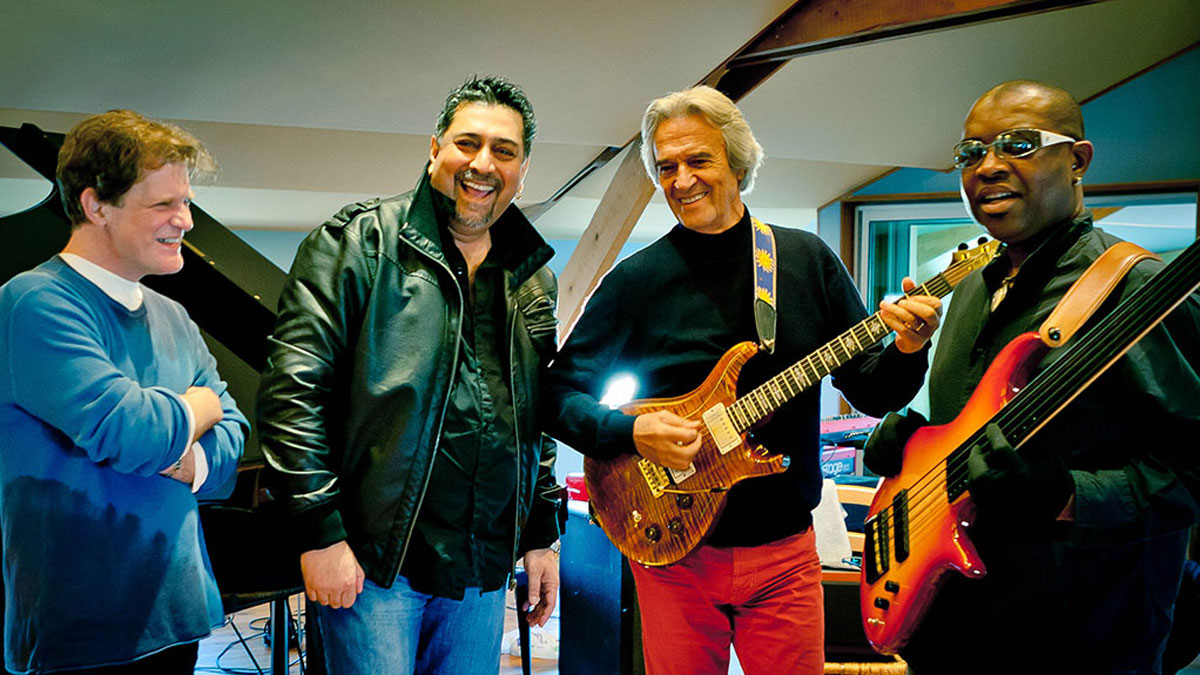
Jazz rags
“I think this band [4th Dimension] is probably the greatest band I’ve had since the Mahavishnu days. They’re just outstanding players and fantastic guys, too. There’s a marvellous kind of complicity developed, so that when we go on the stage, everyone’s thrilled…
When we start to play together… first of all, we’re happy
“Improvisation has always been a critical element in my bands and this is no exception and these people are great improvisors, so when we start to play together… first of all, we’re happy.
“There’s a very joyful feeling in this band that, for me, is particularly enjoyable. We start to play and we don’t really know what’s going to happen when we play and that’s the beauty of improvisation, because it’s spontaneous.
“We all know we have a structure to follow, we’ve got a particular rhythmical cycle, but what we do in that harmonic structure and what we do in that rhythmical cycle is wide open to everybody.”
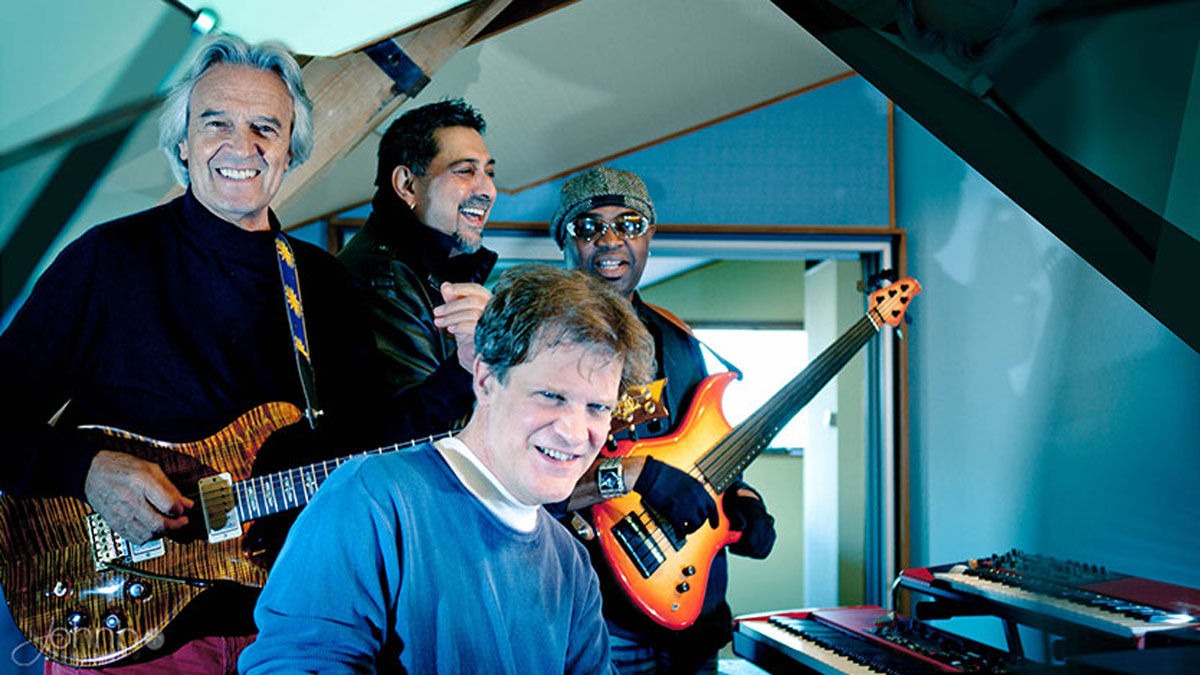
Perfect discipline is equal to perfect freedom
“Of course, we all [as improvisors] need the discipline to stay together. That’s one of the things that makes it great is that we all have the discipline, but also the freedom with the discipline will just bring anarchy in a way. This is what free jazz is.
To play free jazz, you have to be a perfect musician and a perfect human being - and none of us are!
“I already experimented with free jazz in the 1960s and, in my opinion, to play free jazz, you have to be a perfect musician and a perfect human being - and none of us are!
“Not only that, but my particular philosophy, and the band share this philosophy, is that I believe - and we’re all looking for perfection, of course. It’s a will-o’-the-wisp, isn’t it? - but perfection for me, well, perfect discipline is equal to perfect freedom.
“Of course, I’m not perfectly disciplined, but after a lifetime’s work, we do enjoy a certain amount of freedom within the discipline. This, I think, is what contributes to the great spontaneity when we play together.”
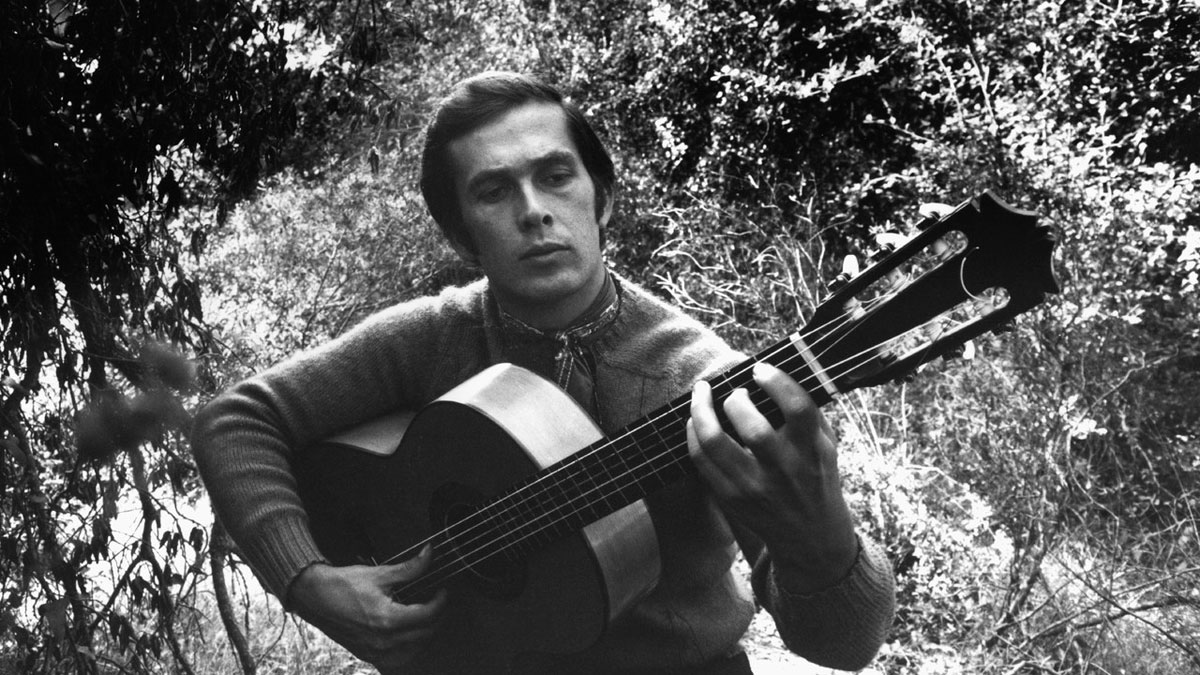
The man who knew
“[There’s a track on Black Light dedicated to Paco de Lucía, pictured] - El Hombre Que Sabia. It means ‘The Man Who Knew’ - and Paco knew.
“That particular piece is one we should have recorded last year, the two of us, and he was particularly fond of this piece, so it really is a kind of homage to him.
We used to spend Christmas together, always, down in the south west of France. He was very dear to me and I really miss him
“[Paco and I had a remarkable synchronicity]. I think the real reason in the end is just ‘love’. In 1978, I was in Paris, I was in someone’s car and listening to the radio and on comes Paco de Lucía. I’d never heard of this chap and I just thought, ‘I have to meet him’. And I was very lucky, I found him very quickly. Crazily enough he happened to be in Paris!
“I met up with him and I said, ‘I heard you play and I think it would be marvellous to work together.’ So we sat down and started playing and it was just amazing.
“We used to spend Christmas together, always, down in the south west of France and the north west of Spain. He was very dear to me and I really miss him. I really miss him.”
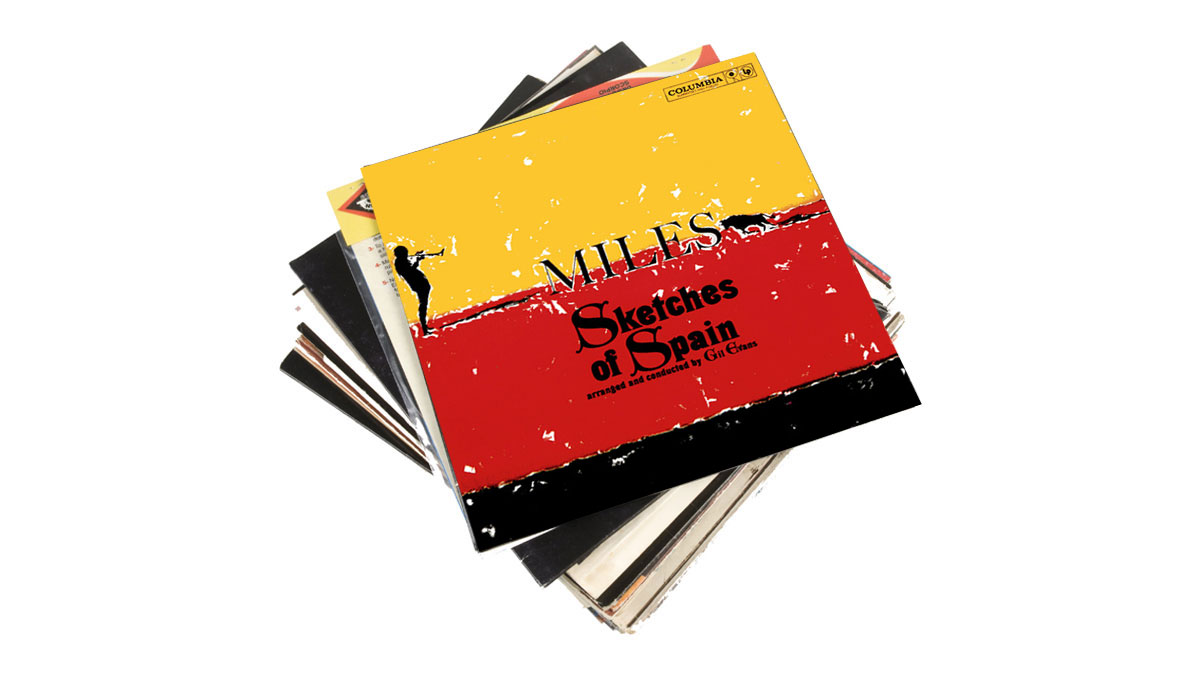
Flamenco flame
“I discovered flamenco when I was 14, before I even got involved with jazz music. I was so crazy about flamenco music. I wanted to be a flamenco guitar player.
I used to skip school regularly to hitchhike to flamenco shows in Manchester
“I used to skip school regularly - a little too regularly for some - to hitchhike from Whitley Bay, where I lived, up near Newcastle, down to Manchester where one of my brothers was at university.
“He would put me up in his digs and I would sneak into a pub with him and listen to this flamenco guitar player called Pepe Martinez who used to come and play there quite regularly. Just so I could see flamenco guitar playing! So I’ve been crazy about flamenco music in general and guitar players in particular for a very long time.
“I was 16 when I discovered Miles Davis - and when I heard Miles Ahead and subsequently Sketches Of Spain, where there is an even stronger Spanish influence, for me I was very happy. Miles was my hero. For me it was fantastic.”
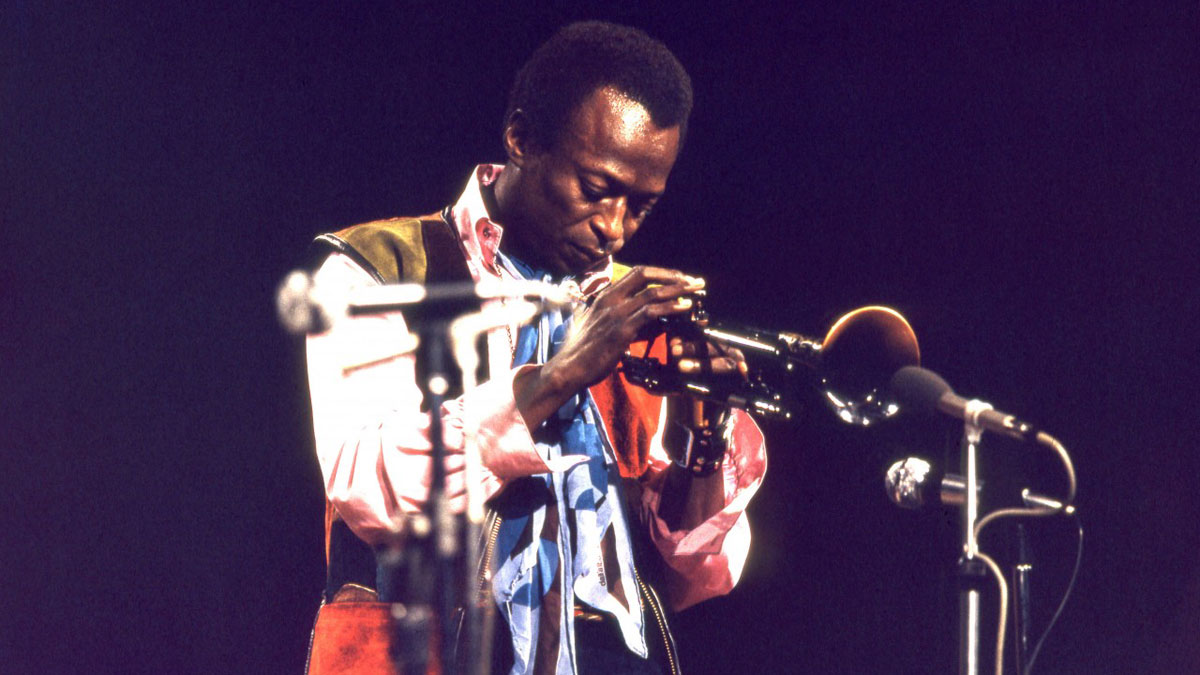
We all speak music
“[When you’re looking for collaborators], it’s the music that speaks first. This is the language of musicians.
I know so many musicians today. We’re going back so many years. Don’t forget how old I am!
“No matter what language they might speak in - for Paco, it was Spanish. And then when I’m playing with my Indian brothers they might be speaking Tamil, they might be speaking Hindi, or Urdu, but I think this is the great thing about music - we all speak music and everybody understands music, even if they don’t speak the same language.
“So when I hear somebody play, like the experience of listening to Paco or going all the way back to the Mahavishnu days. I was with Miles [Davis, pictured] at that time, but of course, through Miles I got to meet a lot of players.
“So when in, it must have been October 1970, after a gig with Miles, we were just chatting backstage and out of the blue he said, ‘It’s time you formed your own band, John…’ It started from [players I’d met through] Miles and then you meet, subsequently, other musicians. I know so many musicians today. We’re going back so many years. Don’t forget how old I am!”
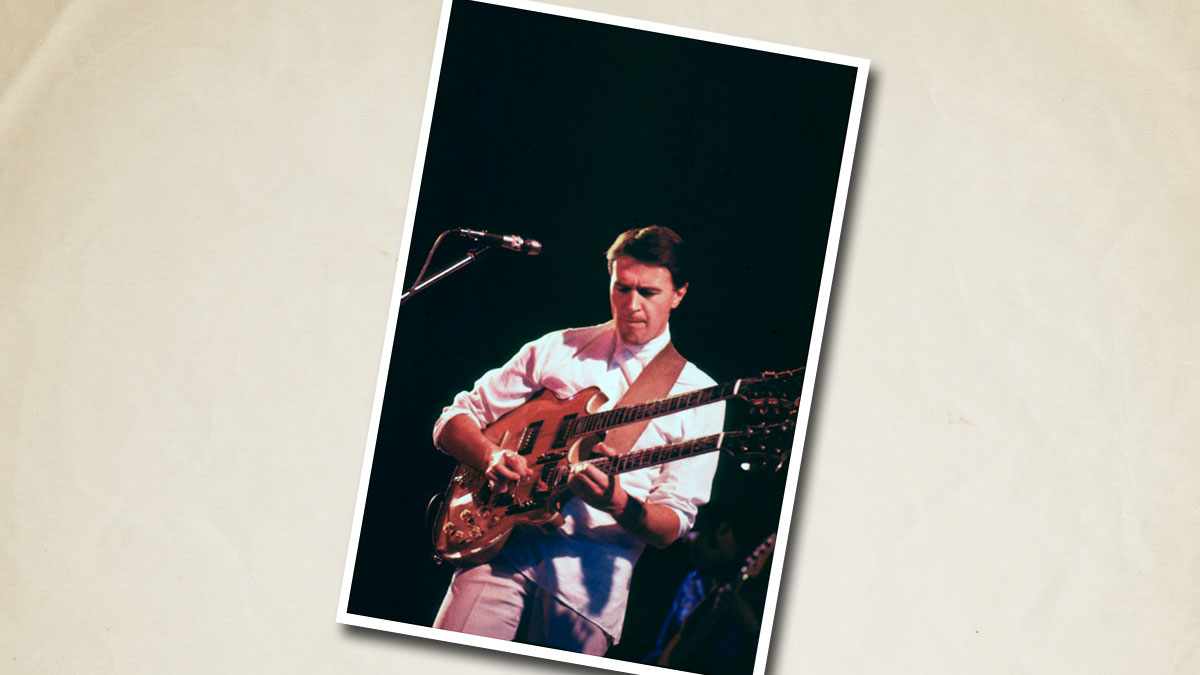
The boost shall set you free
“I was never really a fan of this ‘cool guitar’ [tone]. I was playing with Ginger Baker and Jack Bruce and Graham Bond and all of those guys then, and I got a big amp because I wanted more feedback.
I’d been listening to Coltrane on Love Supreme and he’s not screaming, but he’s got this almost distorted tone
“It was around 1965 and we were all experimenting, looking for new sound, because this cool guitar sound wasn’t doing it for me. I’d been listening to Coltrane on Love Supreme and he’s not screaming, but he’s got this almost distorted tone, so in a way distortion was the key to opening up the electric guitar and liberating it from this cool guitar tone.
“Don’t get me wrong, there were great players in that school - marvellous - but I wanted this more Coltrane kind of thing.”
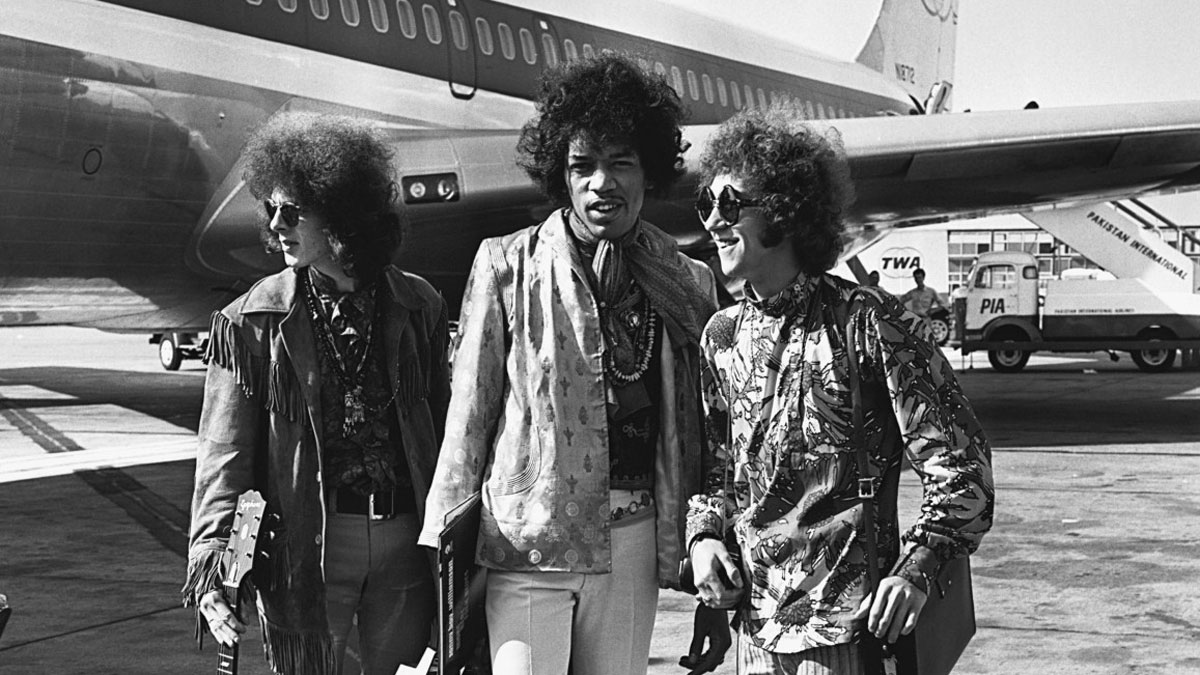
Hanging with Hendrix
“In the mid-60s I was playing not only with Miles, but I also went to New York to play with Tony Williams the drummer and Mitch Mitchell adored Tony. He was Tony’s greatest fan. So every time we were in New York and playing a slog - four one-hour sets a night - there was Mitch.
I walked into this studio and the volume! I was like hallucinating with the volume!
“One night he said, ‘Listen, Jimi’s round the corner…’ [I went to jam with him] but it was bit of a fiasco, because I was playing this big hollowbody guitar - a Gibson with a DeArmond pickup and I walked into this studio and the volume! I was like hallucinating with the volume!
“I tried to play, but I couldn’t play because by guitar was feeding back. Every time I put the volume up it was feeding back. I should have had a solid body!
“I got to meet Jimi a couple of times, though. He was very gracious, very unassuming, no pretensions - he didn’t need it. He had nothing to prove to anybody.”
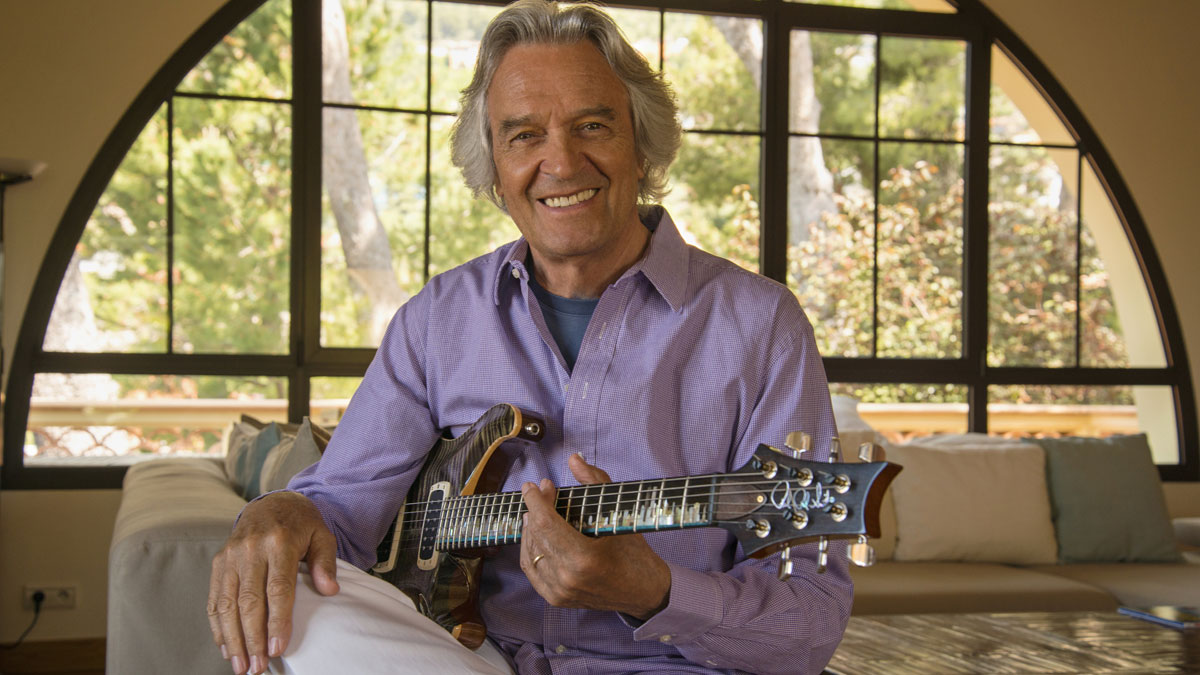
Advice for the young at heart
“What I would recommend to guitar players is that they need to learn to read [music]. Guitar players are notorious about not reading, but music is your personal language, you need know how to read it and write it.
Guitar players get caught up in the licks. But that, strictly speaking, is not playing is it? It’s not creative playing
“The second thing is rhythmical articulation. Sometimes the guitar players don’t articulate as well as they could because it takes a lot of work.
“The other thing is that a number of guitar players get caught up in the licks, you know? The blues lick and that. That can become a habit, like, ‘I know this one lick that works in a lot of places’. But that, strictly speaking, is not playing is it? It’s not creative playing.
“We’ve all got our devices, whether rhythmic or melodic, but you have to be able to let go of what you know in order to discover what you don’t know.
“You have to make that step and jump off the cliff in a way and hope you can fly. If you don’t, well the only thing that gets bruised is your ego!”
John McLaughlin’s new album Black Light is released 21 September.
Matt is a freelance journalist who has spent the last decade interviewing musicians for the likes of Total Guitar, Guitarist, Guitar World, MusicRadar, NME.com, DJ Mag and Electronic Sound. In 2020, he launched CreativeMoney.co.uk, which aims to share the ideas that make creative lifestyles more sustainable. He plays guitar, but should not be allowed near your delay pedals.
